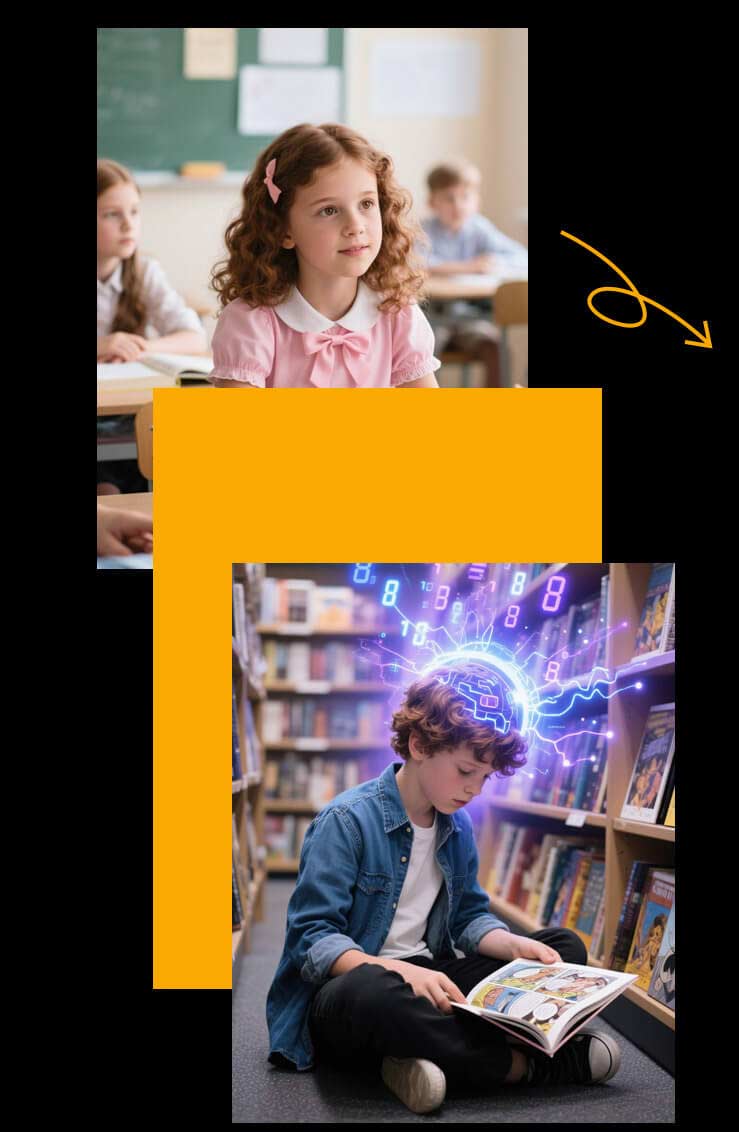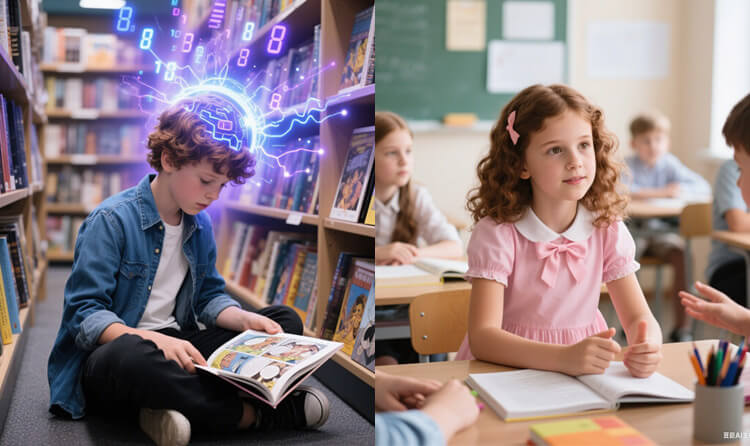
perceptive, inquiring minds
unusual insight and intellectual curiosity
superior judgment and reasoning ability
abstract and critical thinking
originality
ability to see connections between ideas
long concentration spans in areas of interest
advanced reading ability
extensive vocabulary
keen powers of observation
strong sense of ethics and values
a rapid mastery of basic skills
special ability in one or more areas, such as music, art, science, language, computers,


This is far from being an all-inclusive list, and not every bright child has all of these characteristics.
However, in general, compared to children of the same age, gender, temperament and cultural background, the gifted, school-age child will exhibit some of the following behaviours more frequently, more intensely, and for a longer period of time:
Of course it might be the case that only one aspect of a child’s development could be interpreted as being more advanced than that being exhibited by his or her classmates. Also, children rarely develop according to a strict timetable: some children learn to walk or talk earlier than the norm. Therefore, one should be cautious about assuming that a child is gifted unless a certain trait is particularly obvious, or unless a combination of several unusual characteristics is evident.
One useful definition was passed into law by the U.S. Congress in 1988.
“Students, children or youth who give evidence of high achievement capability in areas such as intellectual, creative, artistic, or leadership capacity, or in specific academic fields, and who need services and activities not normally provided by the school in order to develop those capabilities.”


There are many forms of giftedness. Of course Mensa is primarily concerned with intellectual ability, but the second part of the above definition is highly relevant: “… and who need services and activities not normally provided by the school in order to develop those capabilities”. Some may argue that it is elitist to identify intellectually gifted children, but it is not elitism to recognise that gifted children need special attention in order to bring them to their full potential, just as much as other, less able children may need help, advice or support to reach theirs.
It is also important to understand that there is no single “one-size-fits-all” solution, and that each individual gifted child is unique. Each needs to be adequately stimulated and their talents channeled, and that is a challenging task for parents, teachers and schools.
